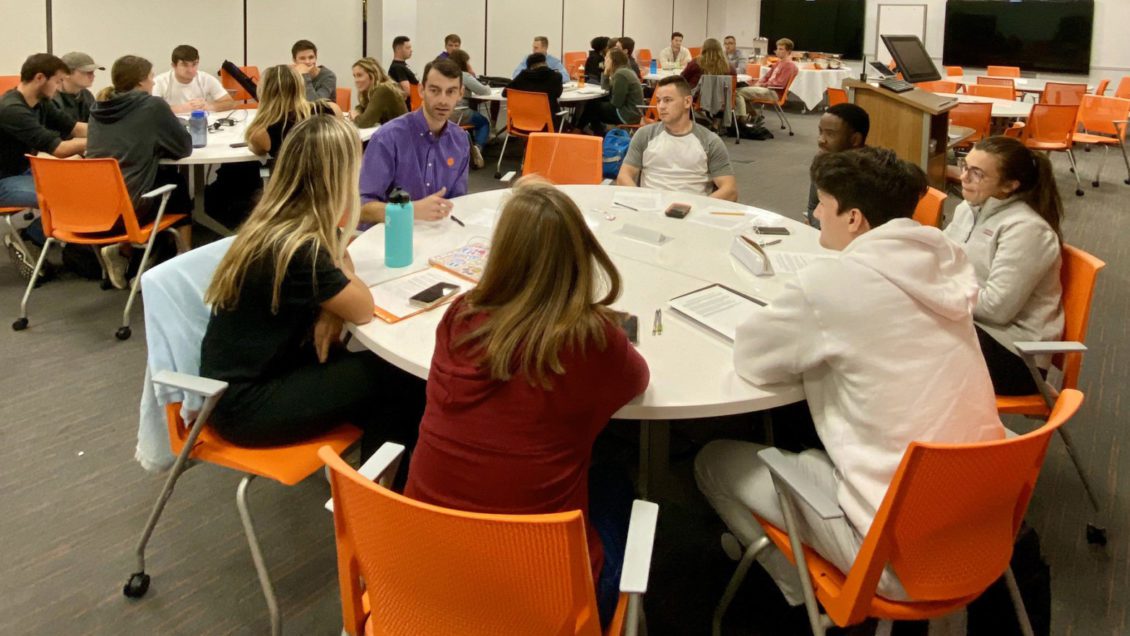The power to persuade is a skill that is useful at the negotiating table and the holiday dinner table. Yet, persuasion is a skill that comes naturally to a select few.

On the Clemson University campus, the Hayek Center for the Business of Prosperity recently piloted a project that aims to help students navigate disagreement on a variety of controversial topics.
“The Civil Discourse Project” provided Clemson students with a crash course on critical listening, speaking and writing persuasively, and disagreeing respectfully,” said Reed Watson, director of the Hayek Center and professor of practice in the John E. Walker Department of Economics.
The 32 students who participated in the three-day workshops were led by Watson and Lindsey Dixon, lecturer and director of debate in the Department of Communications. Watson and Dixon teamed up to lead discussions in group decision making, verbal and written workplace communication and practice sessions that examined contentious economic policy and business ethics cases.
“Whatever career direction our students pursue, they need to be effective communicators in order to be successful,” Watson said. “A goal of the Civil Discourse Project was to improve students’ communication skills, particularly their ability to persuade.”
The workshops’ curriculum taught students how to structure an effective argument followed by active practice forming and defending students’ own points of view. A goal was to refine students’ communication skills in a variety of situations while maintaining civil discourse.
Nathan Duell, a junior economics major and management minor, said the workshops taught him what to listen for in a debate or disagreement in order to have a civil and educated conversation.
“The exercises we practiced definitely gave me a stronger understanding of how persuasive communication can work to your benefit in a social or business setting.” Nathan said. “I see the skills we learned from the workshops helping me sell myself as the best candidate for a job after graduation.”
Some of the topics used in exercises to hone students’ persuasive skills included:
-Should technology companies like Uber and Lyft treat independent contractors as employees, including minimum hours and benefits?
-Should college athletes be paid for endorsements and use of their statistics/likeness without forfeiting their eligibility?
-Should states require publicly traded companies to institute gender and racial diversity minimums on their boards of directors?
Another goal of the workshops was to create a more diverse dialogue on contentious issues, Watson said. “We believe important economic and social issues are not receiving the careful thought they deserve because people, especially students, are afraid to disagree with someone,” he said. “It is uncomfortable to disagree with someone, sure, but ‘echo chambers’ are not known to contribute new ideas or effective policy.”
About the Hayek Center for the Business of Prosperity
The Hayek Center for the Business of Prosperity is housed in the College of Business at Clemson
University. Through a combination of scholarly research and undergraduate education, the Hayek Center examines the fundamental purpose of business and how it impacts society and those who choose careers in business-related fields. The Hayek Center is funded by private gifts and is named for Nobel Prize winning economist Friedrich Hayek.
# # #
Get in touch and we will connect you with the author or another expert.
Or email us at news@clemson.edu

